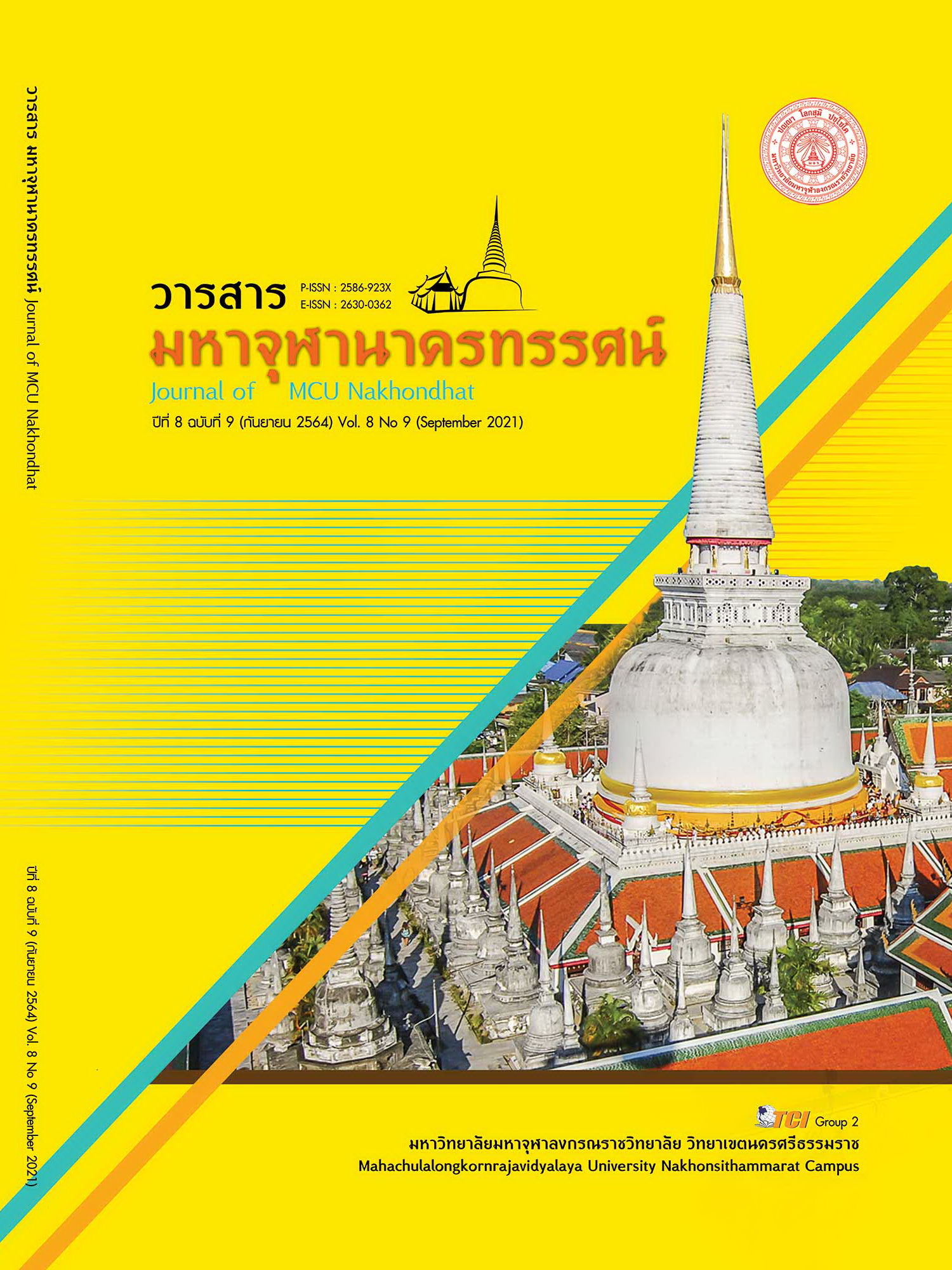LAWS REGARDING PROCURING INTERPRETERS AT THE INQUIRY LEVEL
Main Article Content
Abstract
The objectives of this research paper were: 1) to study the legal problems related to the procurement of interpreters at the investigative stage; 2) to compare the law relating to the procurement of interpreters in the interrogation stage in Thailand and abroad; 3) to create a law to amend the law on with the provision of an interpreter is a documented research by searching from various documents related It was found that even though there is a Criminal Procedure Code section 13, there are still problems that are not covered, such as the issue of the interpreter's qualifications, saying that "in the case of unable to speak or understand Thai and without an interpreter", if the parties provide an interpreter themselves, it is considered having an interpreter according to the law. But if you get an interpreter that doesn't have a good enough interpreter qualification It is deemed that the interpreter does not qualify as an interpreter in the interrogation class. There was a lot of damage in the investigation process. As a result, criminal investigations are unlawful. As for the issue of procuring an interpreter the law only states that the “inquiring officer shall provide an interpreter without delay” does not cover where an interpreter can be obtained or by any means, it must also be completely revised. Compare the laws of each country. Regarding qualifications and provision of interpreters, the United States has a judicial council responsible for defining interpreter qualifications and the court administration is responsible for selecting and certifying English interpreters. Every interpreter must have a criminal background check. Australia There is a code of ethics and an interpreter code of conduct. and has a national interpreter accreditation agency Serves to determine qualifications and certify accreditation as an interpreter. brought to amend the laws of Thailand to be more complete
Article Details
References
กติการะหว่างประเทศว่าด้วยสิทธิพลเมืองและสิทธิทางการเมือง. (1966). เรียกใช้เมื่อ 5 กรกฎาคม 2564 จาก https://treaties.un.org/doc/publication/unts/volume %20999/volume-999-i-14668-english.pdf
ณฐอร ศรีสว่าง. (2558). การเข้าถึงกระบวนการยุติธรรมสำหรับผู้ที่ไม่พูดภาษาไทย: กรณีศึกษา ระบบการจัดหาล่ามในจังหวัดแม่ฮ่องสอน. ใน สารนิพนธ์นิติศาสตรมหาบัณฑิต สาขาวิชานิติศาสตร์. มหาวิทยาลัยเชียงใหม่.
ปฏิญญาสากลว่าด้วยสิทธิมนุษยชน. (1948). เรียกใช้เมื่อ 3 กรกฎาคม 2564 จาก https://www.law.cmu.ac.th/law2011/journal/e1378954318.pdf
พระราชบัญญัติแก้ไขเพิ่มเติมประมวลกฎหมายวิธีพิจารณาความอาญา(ฉบับที่ 19). (2539). ราชกิจจานุเบกษา เล่มที่ 133 ตอนที่ 61 ก. หน้า 6 (17 พฤศจิกายน 2539).
ศรัณยา เลิศศาสตร์วัฒนา. (2539). สิทธิของผูต้องหาและจำเลยในการมีล่ามในการดำเนินคดีอาญา. ใน วิทยานิพนธ์นิติศาสตรมหาบัณฑิต สาขาวิชานิติศาสตร์. จุฬาลงกรณ์มหาวิทยาลัย.
สมนึก เขมทองคำ. (2559). การพัฒนาระบบการสอบสวนคดีอาญาของไทย. เรียกใช้เมื่อ 5 พฤษภาคม 2564 จาก https://www.tci-thaijo.org/index.php/phdssj /article/ view/67243/54855
สุทธิพล ทวีชัยการ. (2549). การช่วยเหลือผู้ต้องหาและจำเลยชาวต่างประเทศตามกฎหมายไทย: การจัดหาล่ามในชั้นศาล. วารสารดุลพาห, 49(2), 68-78.
อนุสัญญาว่าด้วยสิทธิมนุษยชนแห่งยุโรป. (1950). เรียกใช้เมื่อ 2 กรกฎาคม 2564 จาก http://www.hri.org/docs/ECHR50.html
อรพันธุ์ เต็มตามกมล. (2559). การพัฒนาระบบการจัดหาล่ามให้แก่ผู้ต้องหาและจำเลยชาวต่างชาติ ในคดีอาญา หลักสูตรการพัฒนานักบริหารระดับสูง. กรุงเทพมหานคร: สถาบันพัฒนาข้าราชการฝ่ายตุลาการศาลยุติธรรม.


